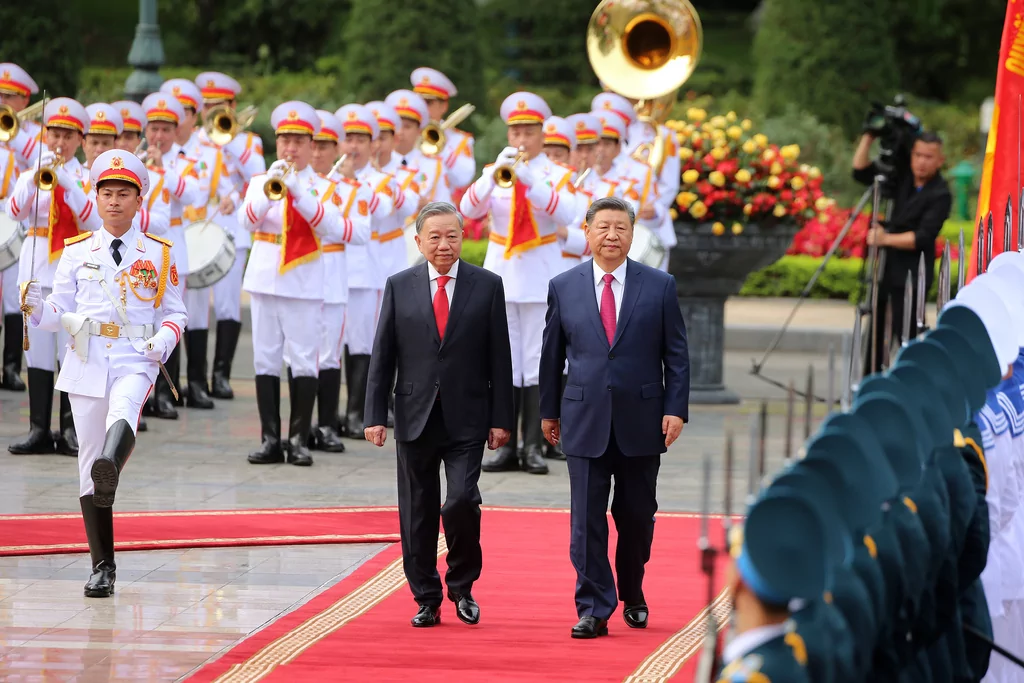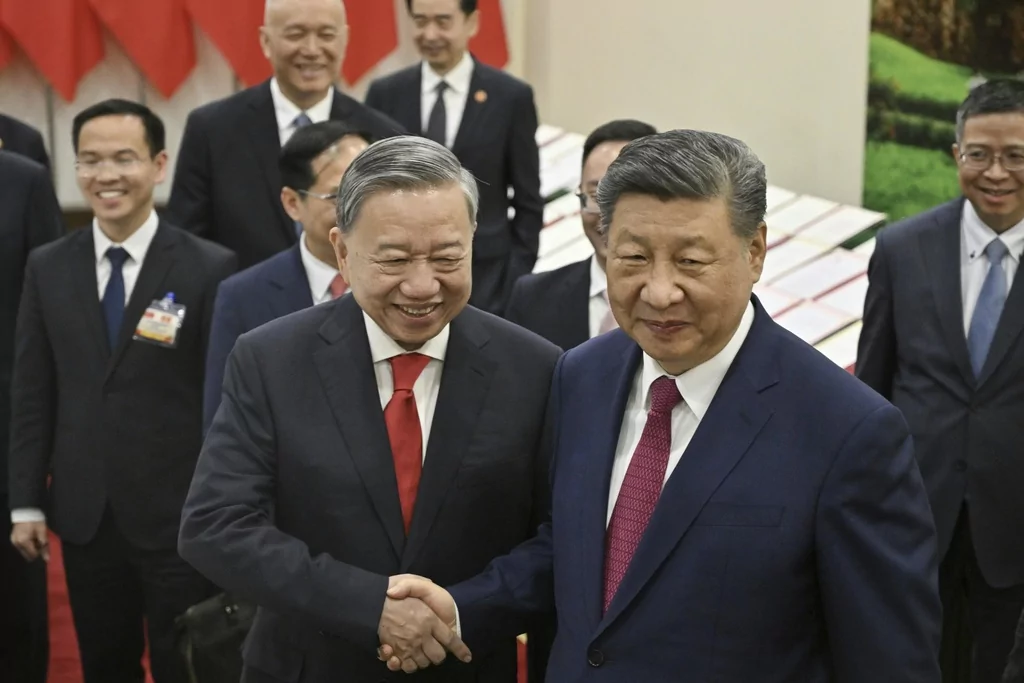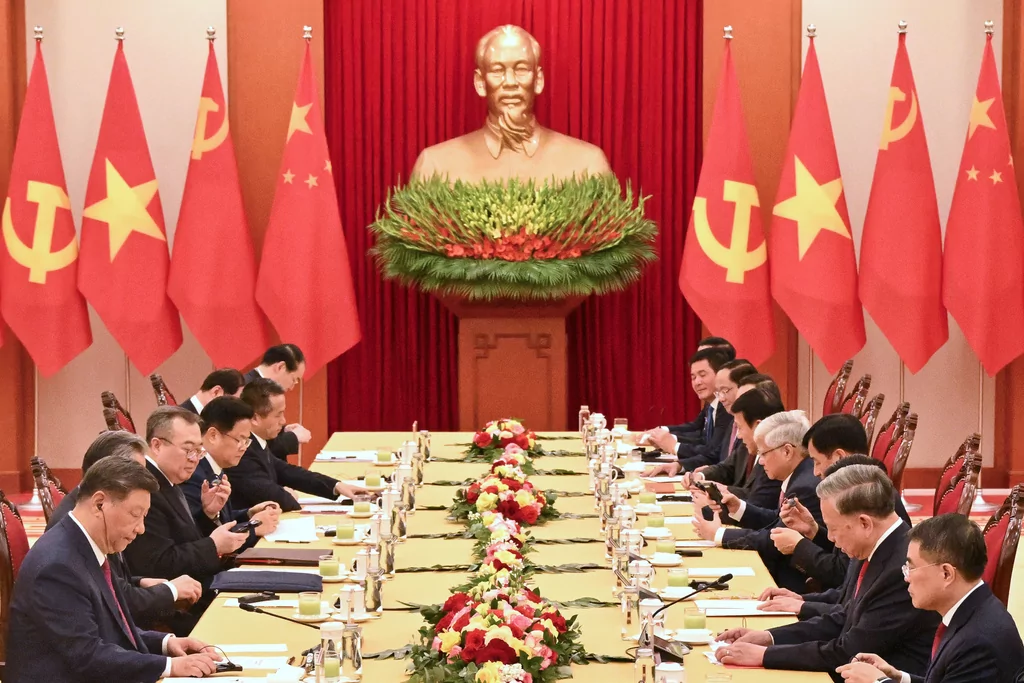Chinese President Xi Jinping continues his country’s search for reliable allies against U.S. tariffs as he meets with “friendly socialist neighbors” in Vietnam.
Xi, who also serves as the general secretary of the Chinese Communist Party and chairman of the Central Military Commission, arrived in Hanoi on Monday to meet with Vietnamese General Secretary of the Communist Party, To Lam.
An op-ed signed by Xi was released to coincide with the meeting, outlining the Chinese Communist Party’s assessment of current global trade and laying out a vision for countering United States economic policy.
“[China and Vietnam] should work together with the Global South to uphold the common interests of developing countries,” Xi wrote. “Trade war and tariff war will produce no winner, and protectionism will lead nowhere.”

The Chinese leader bemoaned the “headwinds of mounting unilateralism” coming from the West as President Donald Trump’s administration maintains a 145% tariff on all Chinese goods.
China fired back at the U.S. tariffs with 125% reciprocal tariffs of their own.
He presented his own nation as a defender of an “open and cooperative international environment,” a counter-balance to American economic influence. He further expressed a desire to build stronger trade blocs capable of supporting the “multilateral trading system” and “stable global industrial and supply chains.”
“We will stay committed to the principle of amity, sincerity, mutual benefit and inclusiveness,” Xi wrote. “We will continue to pursue the policy of forging friendship and partnership with our neighbors.”
Vietnam would be a valuable strategic ally in an anti-U.S. trade bloc. China maintains a near-monopoly on the rare earth processing industry, but Vietnam has attempted for years to build and operate its own processing facilities due to its rich domestic deposits, second only to China.

Prior to the tariff war, Vietnamese rare earth processing was seen as an opportunity for the U.S. to circumvent and weaken the Chinese stranglehold on the industry. This point is no doubt on Xi’s mind as he courts the fellow communists’ favor today and tomorrow.
Mineral processing was a key aspect of the U.S.-Vietnam Comprehensive Strategic Partnership, a bilateral cooperation agreement struck in 2023.
Xi’s warnings about the danger of trade wars were reiterated by the Chinese Ministry of Foreign Affairs on Monday.
“Facts have shown and will continue to show that there are no winners in a trade war, and protectionism will lead nowhere. The tariff tsunami hurts the U.S. itself as well as other countries,” said spokesman Lin Jian when asked for comment by state media outlet China-Arab TV. “We urge the U.S. to quit maximum pressure and resolve issues through dialogue on the basis of equality, respect, and mutual benefit.”
XI JINPING HAS SPENT HIS CAREER PREPARING FOR TARIFF FACEOFF. IT MAY NOT BE ENOUGH
Customs and Border Protection announced last week that various tech products, such as smartphones and computer monitors, will be exempt from the whopping 145% tariffs.

Trump later claimed these products were not “exempt” but instead put into a different tariff category, still affected by the 20% tariff imposed on China as punishment for failing to curb the fentanyl trade.
The Chinese Communist Party was unimpressed with this small concession, insisting it was only a “small step” to normalizing trade.
Xi Jinping will be in Vietnam through Tuesday, then continue his multinational trip with stops in Malaysia and Cambodia.













